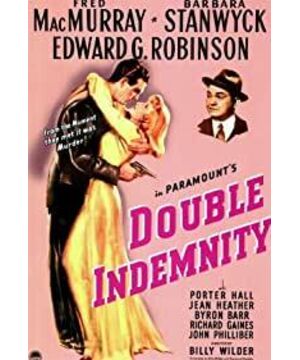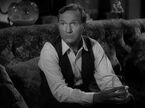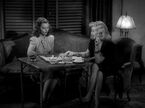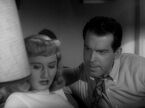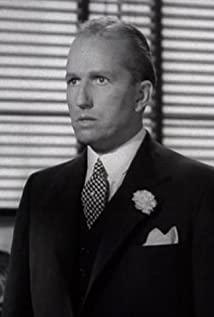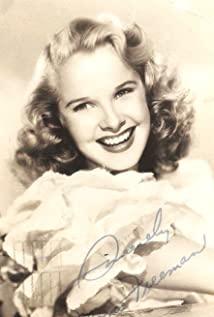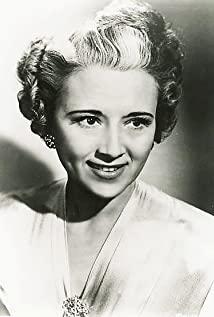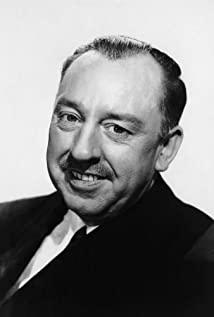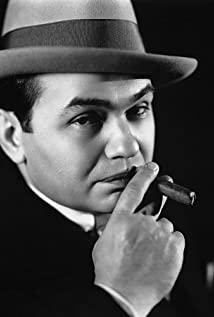Translation: Tarkberg The
following interview is included in the "Film Noir Reader", which is the most comprehensive and authoritative film noir work to date. The interview was conducted in June 1975.
Q: When you first entered the film industry, it was after the First World War, and anti-Semitism was permeated throughout Europe. As a Jew who grew up in this environment, has this caused your pessimistic view of life?
W: I think only Americans feel pessimistic.
Q: Is it even in film noir? Too many noir films have been shot by immigrant directors from Europe. You and many of them have worked together when they were in Europe, including Robert Theodoremaker, Edgar G. Ulmer, Fred King Niemann, as well as Fritz Lang and Otto Preminger.
W: What is the relationship between Otto Preminger and film noir?
Q: "Laura", "Iron Bull King Kong", "Fallen Angel" (Note: All works by Preminger). In an interview with him, he told me about Max Reinhardt, German expressionism, searching for genres, and so on. . .
W: But, lo and behold, you used a key concept here: looking for types. However, you must understand that a director, at least a director like me, shoots many different movies and uses many different styles. I'm not just shooting one kind of movie like Hitchcock. Or that Nellie, he only shoots musicals. As a director, I think most of our people are the same as me, and I don't notice the type. We don't notice that "this film belongs to the entire genre." It develops naturally, just like we write by hand. This is what I think, I think it is like this. . . Only when you watch a movie, you will connect them with a certain theory. You might ask me: "In the movie you made in 1935, the good guy was motivated by kindness; then, in the next four works, this happened. Or, you always do this. Shooting..." I never realized these things. I never think: "What is the overall theme of my work?" It only makes me laugh. I just tried my best to make an excellent and entertaining movie. If I have a certain style, those sharp-eyed viewers will find it. I can always recognize a Hitchcock movie. I can tell you that this is a Kim Widow movie, and that is a Frank Capra movie. Everyone has their own writing style, but this is developed inadvertently.
Q: But there is always something that makes you interested in film noir, right? For example, why did you choose the story of "Double Insurance"? Why did you choose Raymond. Chandler worked with you to adapt the script?
W: This is a good question. I have already answered this question and wrote about it. I believe you already know it. So, I can give you a very romantic explanation. A producer (Joe Sistrom) approached me and asked me, "Do you know James Kane?" I replied, "Of course! He is the author of "The Postman Rings the Bell Twice"." He said : "Unfortunately, we didn't get the novel, MGM got it. However, in order to make more money, he wrote a serial novel "Double Compensation" for the old "Liberty Magazine". You find it to read." So, I read it, and said to him, "It's great! Although it's not as good as "The Postman Rings the Bell twice", let's take it!" So, we bought it. copyright. Then we said: "Mr. Kane, would you like to adapt the script with Mr. Wilder?" He said: "Of course I would, but I can't, because I adapted "Western" for Fritz Lang in the 20th century Fox. Union." So the producer said, "There is a writer named Raymond Chandler who specializes in the "Black Mask" mystery novel." No one knew him at that time. So we said: "Let's invite him to join." He has never worked for a movie. So he started to work. You see, I didn't jump up and down on the bed like those crazy men in Gothic art, with my hair dancing in the wind, racking my brains to plan every detail of the movie. We just happened to meet Chandler.
Q: Let's talk about "Double Compensation". Do you think the last scene of the gallows in the original movie is anti-climax?
W: At the beginning, we were very happy that we filmed this scene. Fred MacMurray likes this very much. At first, he didn't want to film this scene. In fact, none of the leading actors wanted to act in this scene. But later, he was happy to be able to film this scene. I am his good friend, and I can tell you that when he filmed that scene, he did not hesitate and his performance was excellent. I finished the scene, the execution, etc., taking care of every detail to make it absolutely real. However, I suddenly felt that, look, the whole story is already over. When Neve fainted by the elevator, when he couldn't light the match again, I had already prompted with a voice-over. You can hear the sirens in the distance, whether it is an ambulance or a policeman, you know that the story is over. The gallows is no longer needed.
Q: MacMurray is an ideal candidate for this role, strong on the outside, but weak at heart so that he will be seduced by a woman.
W: He is just a middle-class insurance salesman. If he was really tough, then Stanwyck would have no work to do. He must be tempted and pushed into the matter. He was an ordinary person, but suddenly became a murderer. This is the dark side of the middle class, how an ordinary person becomes a killer. However, it is quite difficult to find a protagonist. Everyone rejected me. Believe me, I searched the whole street, including George Raft. No one wants to play this role, they don't want to play this unsympathetic guy. Fred MacMurray didn't want to act in the beginning. He said, "Look, I'm just a saxophone player. I'm making comedies with Claudette Colbert, what can you get from me?"
"Look, you have to take a step forward and believe me it's worth it. It's not difficult." So he acted. But he didn't want to play this role. He did not want to be murdered, nor did he want to kill. Stanwyck knew what she was going to do from the beginning.
Dick Powell offered to ask Ying to play this role. He told me: "I don't need a penny." He knows that this is a way to get him out of the clutches of the horror-you know how he spit on Ruby Keeler's face and sang, he must Come out, so he dreams of playing this role. That was before "Murder My Love". He came to my office and said to me, "For the sake of Christ, let me play this role!"
"Look, I can let a comedian play it and transform him. But I don't want it. A singer." But, you know, he was so good in "Murder My Love."
Q: When Chandler wrote about how a meek housewife wanted to wipe off their husband's neck, was he also talking about the dark side of the middle class?
W: Chandler is more cynical than me, because he used to be more naive and romantic than me. He insisted on his strange ideas and thought that Hollywood was just a home base for hypocrites. I don't think he is completely wrong, but he has never understood what a movie is or how it works. He couldn't help but know how to arrange the structure of a movie. He didn't know how to adapt those novels. And the dialogue he wrote. That's a lot of rubbish, I have had enough. After spending a few weeks with him, after we smoked a few big cigarettes together, I came up with a few okay conversations myself. During the shooting, we asked him to stay on the scene and discuss the changes in the dialogue with him.
Q: You said that he was good at writing dialogue, but he couldn't handle the plot.
W: The plot is terrible; however, it must be terrible again, because this will not destroy the attention to the atmosphere too much. The plot of "Chinatown" is terrible; Ross McDonough and even some of Hamilton's novels are terrible. The plot, no need. The important thing is the atmosphere of this hot room; this is the description: a person's ear hair is so long, it sticks out his ears, and it grows to catch moths. These are important. What's interesting is that Chandler can come up with great images, but I can come up with Chandler-style dialogue and plot. You know, how weird this is. He is not a young man. We worked together on the set of "Double Insurance" for ten to twelve weeks, but he did not learn it. . . I mean technology. So, he started going his own way, and John Houseman seldom cared about him. A screenwriter is a second-rate poet, a third-rate dramatist, and a half-hearted engineer. You have to learn to build bridges so that traffic can pass on them, everything, performances, plots and everything that happens on the set. Screenwriting contains a lot of technology, of course, it needs a little artistic feel; but the most important thing is how to arrange the plot so that the audience does not fall asleep. You can't make the actors and the audience feel dull.
Q: Let's talk about "The Upside Down Ace". In this film, you tell the story of a man who survived by taking advantage of other people's tragedies.
W: Our protagonist, a reporter, is played by Mr. Kirk Douglas. Now, he is out of the country poorly, but he hopes to return to that peak moment by reporting a great story and to work with the best newspaper workers again. He remembers the story of Floyd Collins. Now, I found the story of Floyd Collins. They made a song, they sold hot dogs, they held a carnival, and people poured in like a tide. Because of this movie, I was scolded by every newspaper. They hate this film. They said it was too cynical. Go fucking cynical. Let me tell you, you read in the newspaper that an airplane crashed. You want to check it out, but you can’t get in because there are already a hundred thousand people there: these greedy collectors of souvenirs are picking up rubbish everywhere. , I thought it was a baby. After I read all these horrible comments about "The Ace of Downside", I remember that I went to Wilshire Boulevard and there was a traffic accident there. A person was run over. I stopped the car. I want to help this injured person. Then another person jumped out, picked up the camera and took the picture. I said, "You'd better call an ambulance."
"Go and call a fucking doctor. I'm going to the Los Angeles Times. I took the picture. I must go. I just took the picture. . I must rush back to rush it out." But if you show all this in a movie, critics will say you are exaggerating.
Q: Do you feel that "Double Insurance" makes many films after the 1940s use first-person narrative?
W: I am always a master of storytelling, but this is not because storytelling is a lazy patent. Maybe this is true; but it is not so easy to tell the story well. For example, in "Sunset Boulevard", I asked a dead person to tell the story. This is an economic approach. With two sentences, you can express the plot that the camera must take 20 minutes to develop. There are many people who want to tell stories, but they don’t have the skills to tell stories. In many cases, they have made the mistake of telling you what the camera shows in the narrative, but these are all self-explanatory. However, if the narrative can have new elements and new perspectives, then it is good.
Q: Obviously, I want you to talk about the black factor of Sunset Boulevard.
W: You know, at first, it was a comedy. We wanted to invite Mae West to play, but she refused us. Then, when Paramount asked for an interview, Swanson was almost out. But you know, she has a lot of Norma's shadow on her body.
The biggest threat to the overall tone of "Sunset Boulevard" is that we lost the original actor (Montgomery Clift) and let Bill Holden play this role. He looks older than we want, but Swanson doesn't want to look like a 60-year-old woman. This will not achieve the effect we want. This is a woman who does everything she can to get everything she wants. You can imagine what kind of atmosphere a younger actor, or at least an actor who looks younger, can bring to this movie.
Q: You hired the same photographer, John Seitz, to help you shoot "Double Insurance" and "Sunset Boulevard."
W: He is a great photographer. He is fearless. He won an Oscar with "Five Graves to Cairo", and I think "Sunset Boulevard" will definitely win another for him.
Q: The interior scene of the last scene of "Double Insurance".
W: I know, he shoots very well.
Q: There are also outdoor night scenes, as well as train tracks with dim light.
W: Yes, John is a genius.
Q: The makeup of Barbara Stanwyck in "Double Insurance." . .
W: It was a mistake, a big mistake.
Q: Why?
W: I don't know. I want her to become a blonde beauty. This is more interesting, but. . .
Q: She looks so cold. . .
W: Yes, I want her to look that way. But you must understand that it was a wrong choice. When we started shooting, I was the first person to realize the error. I chatted with someone about George Stevens's "Long Heart Is Like Iron". I think that is definitely a great work. But that person said: "This is indeed a great work, but there is a lame symbolist trick in the film that is not worthy of this great work, that is the lame prosecutor. Fairness is lame, so it needs A crutches. This looks really cheap and contrived."
"Yes, I agree with you. In fact, George Stevens agrees with you." But, you see, if you do this in a drama, After the third scene, you go backstage and say to the actor: "Tomorrow we don’t need that crutch. Okay. Tomorrow, let’s throw away that crutch." But I’m a movie, we already Halfway through, we have let Stanwyck do this for four weeks before I realize that I made a mistake. I can't say: "Tomorrow, you don't have to wear that golden wig anymore." I got stuck there. . . I can't re-shoot the things from the previous four weeks. I am totally stuck there. I was too addicted to myself; the mistake was discovered too late. Fortunately, it did not spoil the entire movie. But it is too thick, we are not good at designing wigs. But when people say: "My God, that wig! It looks so fake." I always answer: "Did you notice? That is my purpose. I just want that woman to look fake," It's hypocritical to use it." This is what I explained.
View more about Double Indemnity reviews


